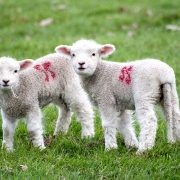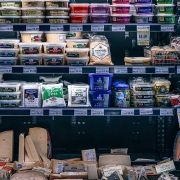How Safe is the Food You Consume?
Food safety is something that we do not pay quite as much attention to as we should. After all, when time is short, as consumers, we are bound to let things slide. Maybe we leave the chicken out of the refrigerator for a little too long.
Maybe we don’t take the time to check a business’s food safety certificate or quality assurance certification. Is it really such a big deal? After all, what’s the worst that can happen? You feel sick for a day or two, right?
Why Should I Be Concerned About Food Safety?
Wrong. Sure, in some cases you do pick up a bug that leaves you feeling sick for a day or two. Around 17% of the American population annually gets sick due to foodborne illnesses. Unfortunately, a case of gastro is the best outcome you can hope for.
Of the 48 million people who contract a foodborne disease in the States in a year, around 128 000 will need to be hospitalized. Around 3 000 will die. It is a sobering thought, isn’t it? It is enough to make you reconsider your whole outlook on food safety standards and quality assurance testing, isn’t it?
How is Food Safety Controlled?
Food safety is controlled through rigorous testing processes that span from the time the food is processed through to the time it lands up on the shelves. That means that many tests for contamination need to be undertaken when the food is being processed, packed, distributed and stored.

This entails:
- Having separate manufacturing and packing facilities for foods that might cross-contaminate each other
- High cleanliness standards to retard the growth of bacteria on equipment
- Keeping the food at the ideal temperature to retard bacterial growth and prevent it spoiling
- Storing the food in the ideal conditions to prevent cross contamination and to keep it from spoiling.
Once the food leaves the store, you have to ensure that you exercise good food hygiene and habits to prevent it becoming contaminated. This means:
- Maintaining the ideal temperature when storing food.
- Not mixing cooked and raw food, or allowing them to come into close proximity during storage.
- Ensuring that defrosted food is not refrozen and that food that will be frozen has cooled sufficiently before-hand.
- Making sure that left-overs are stored correctly and disposed of if they are no longer safe to eat.
Are All Standards the Same?
As much as we like to think so, not necessarily. While health and safety officials do make attempts to police food safety, there is only so far that they can get. That is why it is up to the individual to take steps to protect themselves.
If you are considering dealing with a new business, check that they have the correct certification. If need be, ask them where you can see their food safety certificate.
You would be amazed, and horrified, if you saw what went on in some restaurant kitchens so do not skip this step.
At the end of the day, the safety of yourself and your family should be your greatest concern. Deal with reputable companies that demonstrate that they take food safety seriously.










